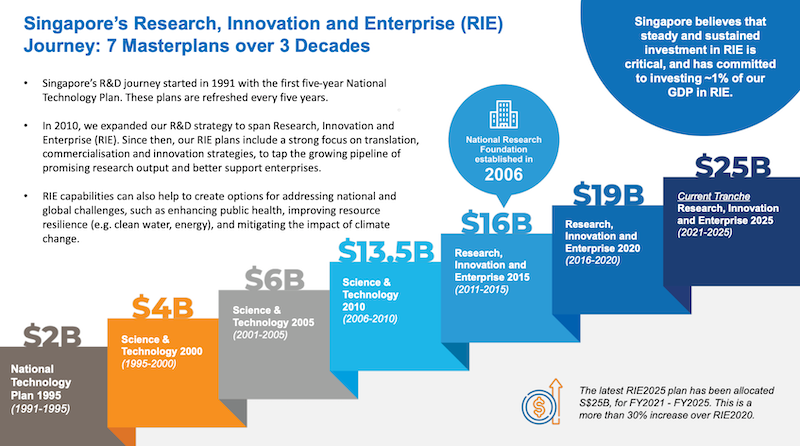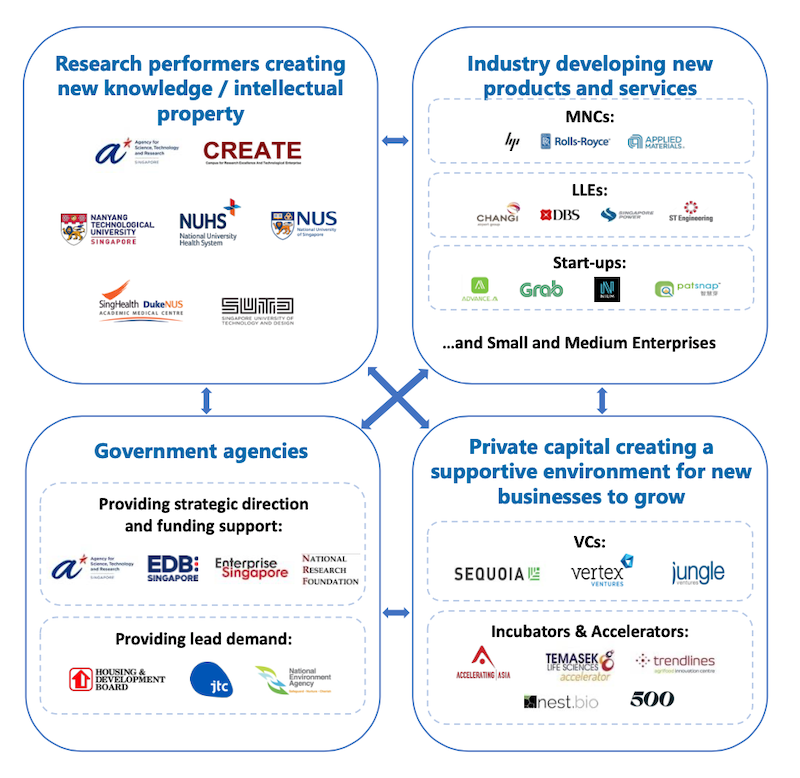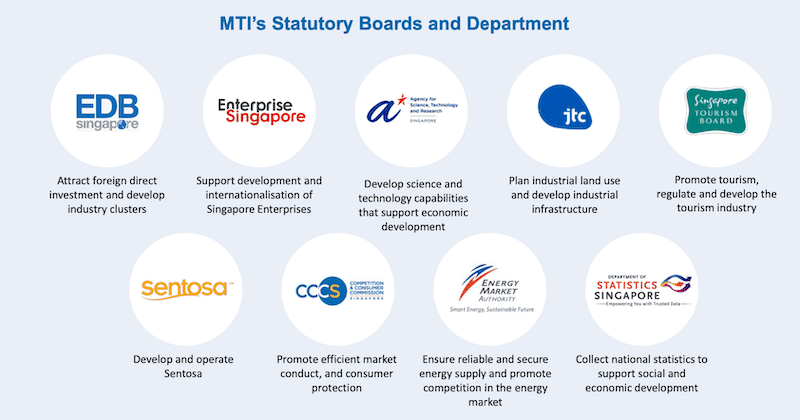Enterprise Singapore, a government agency responsible for growing the island state’s enterprises locally and globally, is working actively to promote Singapore as an innovation hub of the Asia Pacific.
“Thanks to its extensive network of partners in the region, the agency is helping Singaporean companies access market demand and also helping them to work with international companies to expand into Singapore and Southeast Asian markets, according to Tay Shi’an, Director of Innovation, Research & Development at Singapore’s Ministry of Trade and Industry. Together with Yew Jingxi, Deputy Director of Startup Development at Enterprise Singapore, Tay and Yew conducted a joint economic briefing to provide context about Singapore’s startup environment and measures that the government bodies have undertaken to help startups in the nation.”
Enterprise Singapore, which supports the growth of Singapore as a leading hub for global trading and startups, is under the island state’s Ministry of Trade and Industry.
“Singapore is one of the gateways to Asia Pacific and it could serve as a partner in Southeast Asia. We have been actively building and broadening our network across different innovation hubs to drive exchanges in terms of ideas, knowledge and talents,” Tay said.
The goal is to catalyze more collaborations in tech and innovation, according to her.
She said that such collaborations are possible because of Singapore’s vast network of Global Innovation Alliance (GIA) partners in at least 15 cities across the Asia Pacific, including four in Southeast Asia — RISE in Bangkok, Plug and Play in Jakarta and Manila, and Quest Ventures in Ho Chi Minh City.
Tay was speaking in her presentation to a group of Southeast Asian media visiting Singapore recently.
Need to stay open and diverse
Due to its small size, Singapore is aware that in order for the country to thrive and grow, it needs to have an open and diverse economy, she said.
“Singapore is very small in size. We only have less than six million people, and our share of the global GDP is less than 1%. But we do punch above our weight, in terms of our share of world exports. We are 9th in the world and that is because we recognize that in order for us to try and grow, we need to have an open economy and stay open to the rest of the world.”
According to her, manufacturing is a key pillar of Singapore’s economy, accounting for about 22% of the gross domestic product (GDP), in addition to wholesale trade, connectivity, finance and insurance.
“We are also cognizant that we can never afford to stay stagnant, which is why every few years there’s usually a review and a deeper look into where our economy is growing,” Tay said.

Key target areas for investment
For Singapore, key areas that the island state is investing include research and development (R&D), artificial intelligence (AI), and manpower as it is facing new challenges and disruptive changes following the Covid-19 crisis, according to her.
“We recognize that manpower is a key area that we need to nurture in order to build the pipeline of talent that is required to build the R&D projects,” she said.
Singapore is also seeking R&D collaborations with its partners in Asia, particularly regarding projects relating to the coronavirus and other viruses, so that countries can better deal with future pandemics, Tay said.
Flourishing ecosystem for startups
Singapore also has a vibrant and flourishing ecosystem for startups, which in turn helps to increase the attractiveness of the country for business investments and for innovation activities, according to her. More than 3,900 tech startups are based in Singapore.
Tay said that Singapore is internationally recognized for its startup innovation ecosystem in different types of rankings — recently emerging as number 7 in the latest Global Innovation Index 2022.
“We have a diverse crew of multinational corporations with venture arms and innovation hubs, as well as more than 200 accelerators and incubators,” she said.
Despite the Covid-19 crisis over the recent years that have made many potential investors to be more cautious, Singapore still has enjoyed “relatively good growth in terms of startups,” said the director.
According to her, Singapore’s startup investments grew a strong 45% per year from 2017 to 2021, with about 8 billion Singapore dollars (205.6 billion baht) in investments in the first half of this year.

Strengthening startup ecosystem
Tay pointed out that Singapore’s approach to strengthening the startup ecosystem is centered on five pillars — global markets, platforms for co-innovation, a talent pool, more funding, and robust infrastructure.
On catalyzing more platforms for co-innovation, Singapore looks to encourage more business functions, such as corporate venturing and corporate R&D, according to her. One example is the Southeast Asia-centric open innovation challenges involving regional corporate partnerships from Indonesia, Malaysia, Thailand and Vietnam. These include Thailand’s Siam Cement Group.
Regarding human capital for the innovation and startup ecosystem, Singapore values talent development, which forms the core of businesses, according to Tay. Tech talents in particular play a key role for enterprises to improve their innovation effort.
“So we ensure we introduce the entrepreneur scheme and the work pass for foreign entrepreneurs to start and operate a new business in Singapore,” she said, adding that more experienced entrepreneurs for innovative startups help boost the ecosystem’s vibrancy.
“Such entrepreneurs actually contribute to the Singapore ecosystem and they bring disruptive tech as well as capital to Singapore. At the same time, we continue to build our talent pipeline through programs like the Global Ready Talent Program, where we work with institutes of higher learning and enterprises to expose young Singaporeans to startups locally and overseas,” Tay said.

Addressing environmental concerns
Amidst growing environmental concerns, sustainability is now top of mind with many governments and corporates looking at opportunities from the green economy.
Tay said that Singapore sees growing potential as environmental concerns are increasingly significant and driving the development of Southeast Asia’s green economy. For her, such trends could result in opportunities for startups, in terms of digitalization for healthcare, smart city technologies to support continued urbanization, climate change and sustainability.
“I really believe that Singapore’s strong startup ecosystem that we’ve built over the years with partners is really poised to really address the current market demand and grow together with other partners in Southeast Asia,” she said.





